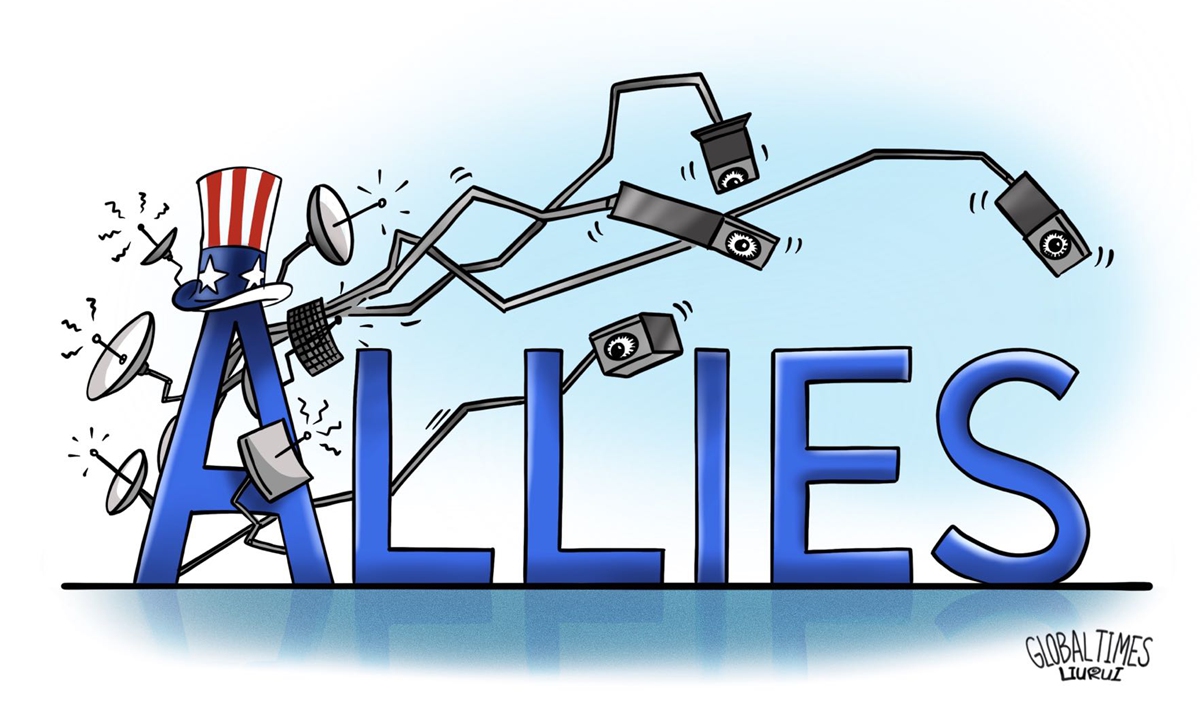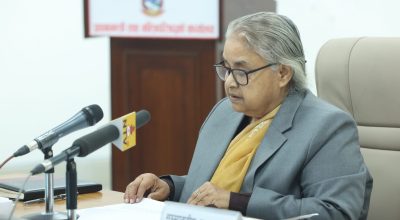
It is said that for a strong friendship, maintaining trust is the most important factor, and all parties need to concentrate on this fact. But when we observe the international activities of the US establishment, it has crossed all boundaries, irritating even its own close friends. The US has been continuously spying on all global leaders, senior officials of international organizations, and other high profile figures of global institutions. This is an open secret. Many European leaders also complained about it multiple times. But the US establishment doesn’t listen to the complaints and suggestions of others. Recent US spying on UN Secretary-General Antonio Guterres and other senior UN officials has further disclosed the malign approach and hegemonic posture of the US establishment. No doubt, it has damaged the international reputation and trust of the US leadership.
The United States has been accused of spying on other nations for decades, and it has recently become a topic of significant concern in the global sphere. The revelation of the National Security Agency’s (NSA) mass surveillance program by whistleblower Edward Snowden in 2013 brought to light the extent to which the US government has been spying on its allies and enemies alike. This has severely damaged the US credibility and trust in the global community, as many countries now view the US as an untrustworthy partner.
One example of the damage caused by US spying is the strained relationship with Germany. The NSA’s surveillance program reportedly targeted former German Chancellor Angela Merkel’s personal phone, which sparked outrage in Germany and led to a breakdown in trust between the two countries. The German government expelled the CIA station chief in Berlin, and the US was forced to publicly apologize for the breach of trust. The incident damaged the US-German relationship and caused a significant diplomatic fallout that has yet to be fully resolved.
Another example is the impact on US relations with Latin American countries. The US has a long history of interference in Latin America, and revelations that the NSA had spied on the communications of numerous Latin American leaders, including former Brazilian President Dilma Rousseff, further undermined trust in the US. This led to a backlash against US influence in the region, with Brazil calling off a state visit to the US and other countries demanding explanations and apologies.
The US spying scandal has also had a wider impact on the global community’s view of the US. Many countries now view the US as hypocritical and self-serving, with little regard for international law. The revelations of mass surveillance by the US government have eroded trust in the US as a global leader, making it difficult for the country to build alliances and work effectively with other nations on issues such as climate change, global trade, and security.
The US government’s spying activities have had a significant impact on the country’s reputation and credibility in the global sphere. The fallout from the NSA’s mass surveillance program has damaged relationships with allies, led to backlash against US influence in Latin America, and undermined trust in the US as a global leader. It will take significant effort on the part of the US government to rebuild trust and restore its reputation as a trustworthy partner in the international community.
Another example is the spying on French government officials, including former President Francois Hollande and current President Emmanuel Macron. The US was accused of intercepting communications and data from French government officials, leading to an outcry in France and a demand for an explanation from the US. The French government expressed their disappointment and concern over the violation of their trust by a supposed ally, further damaging the relationship between the two countries.
The US’s spying against its allies has also been a concern for other countries, who fear that their communications may also be intercepted. This has resulted in a loss of trust in the US and its ability to maintain international norms and agreements. The revelations of the NSA’s surveillance program have highlighted the US’s disregard for the privacy and sovereignty of other nations, leading to accusations of hypocrisy and a lack of respect for international norms.
The United States needs to stop spying on other countries if it wants to maintain its reputation, credibility, and trust in the global community. The revelations of the NSA’s mass surveillance program have damaged the US’s image as a defender of human rights and a champion of democracy. To regain the trust of its allies and the international community, the US must take concrete steps to end its spying activities and demonstrate its commitment to international norms and agreements.
Stopping its spying activities would not only help the US rebuild trust and restore its reputation, but it would also send a strong message to the rest of the world about the importance of respecting international norms and sovereignty. The US has a responsibility to lead by example and to uphold the values of trust, understanding and cooperation. By ending its spying activities and respecting the privacy and sovereignty of other nations, the US can help to create a more stable and secure world, where countries can work together to address global challenges such as climate change, terrorism, and pandemics.
To maintain trust and understanding in the global stage, the US establishment must take concrete steps to end its spying activities and rebuild relationships with its allies. The US government should develop clear guidelines for intelligence gathering that respect international norms and agreements. This would help to ensure that the US’s spying activities are transparent and legal, and that they are carried out with respect for the sovereignty and privacy of other nations.
The US should increase transparency about its intelligence activities to build trust with its allies. The US should engage in more diplomatic efforts to build relationships with its allies and promote understanding. This could involve working closely with other countries to address common challenges and issues, and promoting dialogue and cooperation at the international level. By taking these steps, the US establishment can help to rebuild trust and understanding in the global stage and maintain its reputation as a trustworthy partner in the international community.
The US’s spying against its own allies has damaged its credibility and trust in the global community. The violation of international norms and the privacy of foreign leaders has led to a loss of trust and strained relationships with other countries. The US must take steps to rebuild trust and repair the damage done to its reputation as a trustworthy ally in the international community.














